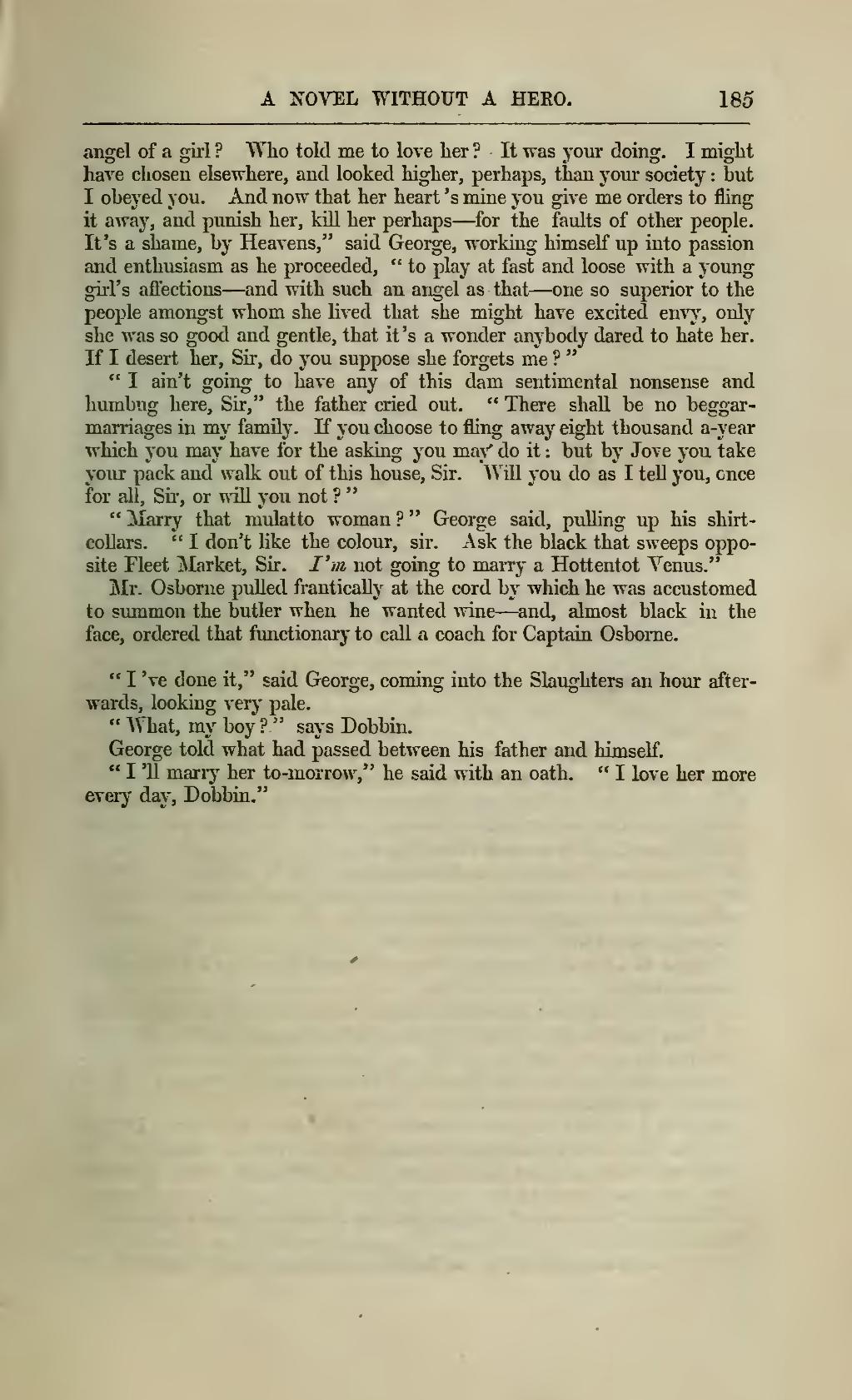angel of a girl? Who told me to love her? It was your doing. I might have chosen elsewhere, and looked higher, perhaps, than your society: but I obeyed you. And now that her heart's mine you give me orders to fling it away, and punish her, kill her perhaps—for the faults of other people. It's a shame, by Heavens," said George, working himself up into passion and enthusiasm as he proceeded, "to play at fast and loose with a young girl's affections—and with such an angel as that—one so superior to the people amongst whom she lived that she might have excited envy, only she was so good and gentle, that it's a wonder anybody dared to hate her. If I desert her, Sir, do you suppose she forgets me?"
"I ain't going to have any of this dam sentimental nonsense and humbug here, Sir," the father cried out. "There shall be no beggar-marriages in my family. If you choose to fling away eight thousand a-year which you may have for the asking you may do it: but by Jove you take your pack and walk out of this house, Sir. Will you do as I tell you, once for all, Sir, or will you not?"
"Marry that mulatto woman?" George said, pulling up his shirt-collars. "I don't like the colour, sir. Ask the black that sweeps opposite Fleet Market, Sir. I'm not going to marry a Hottentot Venus."
Mr. Osborne pulled frantically at the cord by which he was accustomed to summon the butler when he wanted wine—and, almost black in the face, ordered that functionary to call a coach for Captain Osborne.
"I've done it," said George, coming into the Slaughters an hour afterwards, looking very pale.
"What, my boy?" says Dobbin.
George told what had passed between his father and himself.
"I'll marry her to-morrow," he said with an oath. "I love her more every day, Dobbin."
